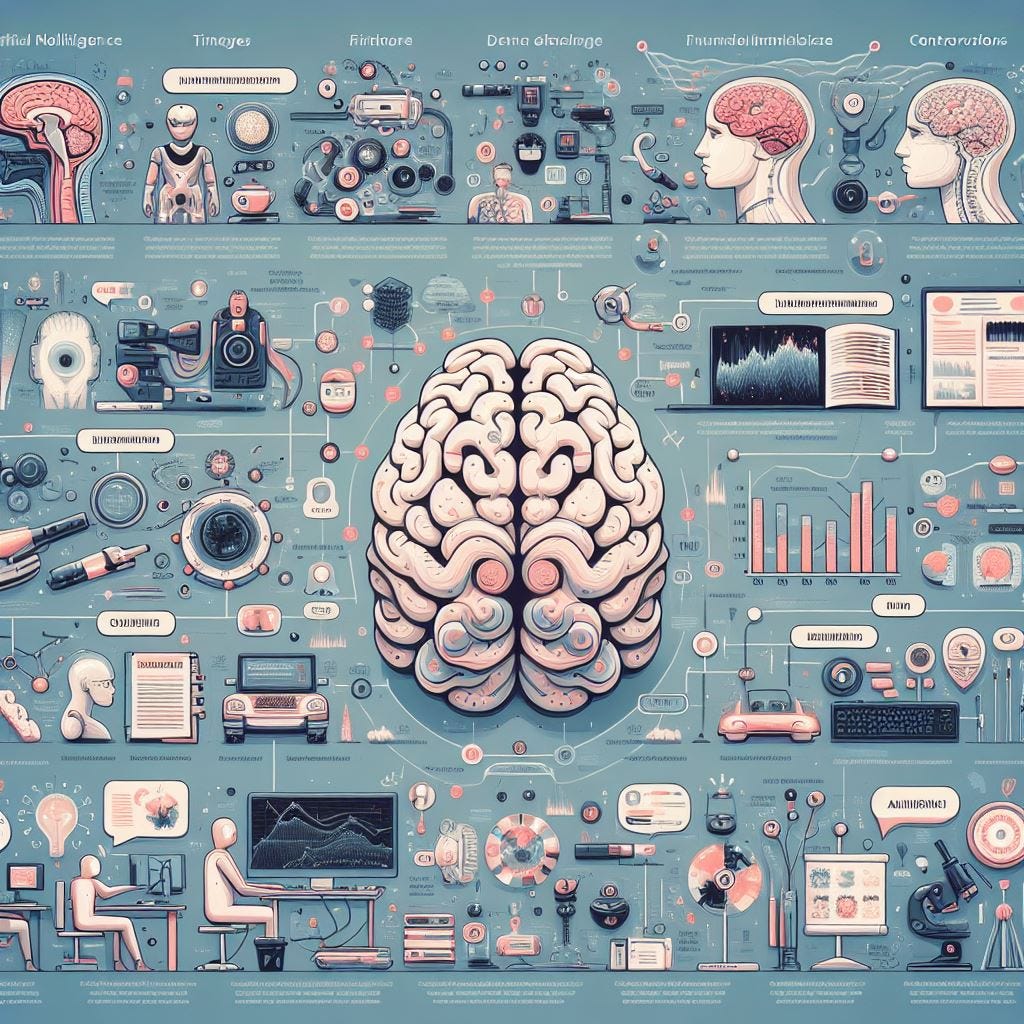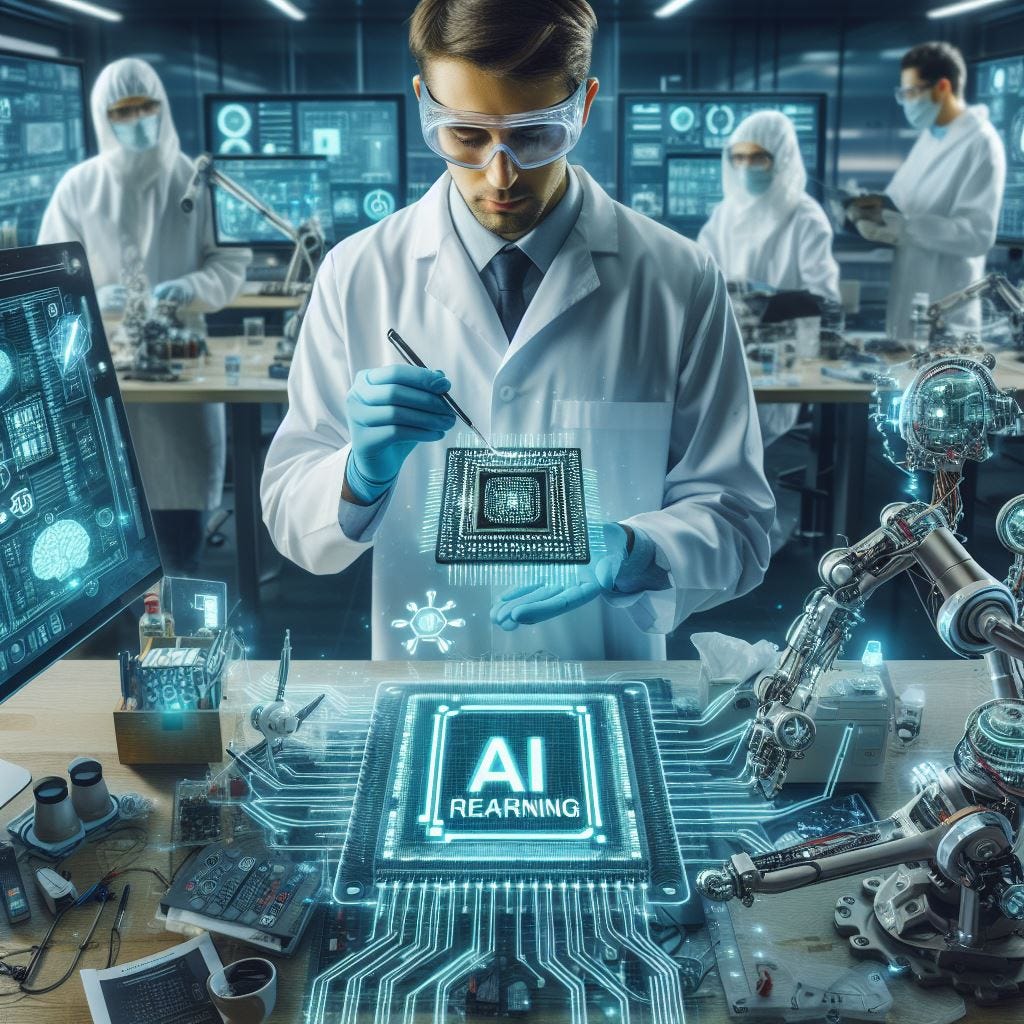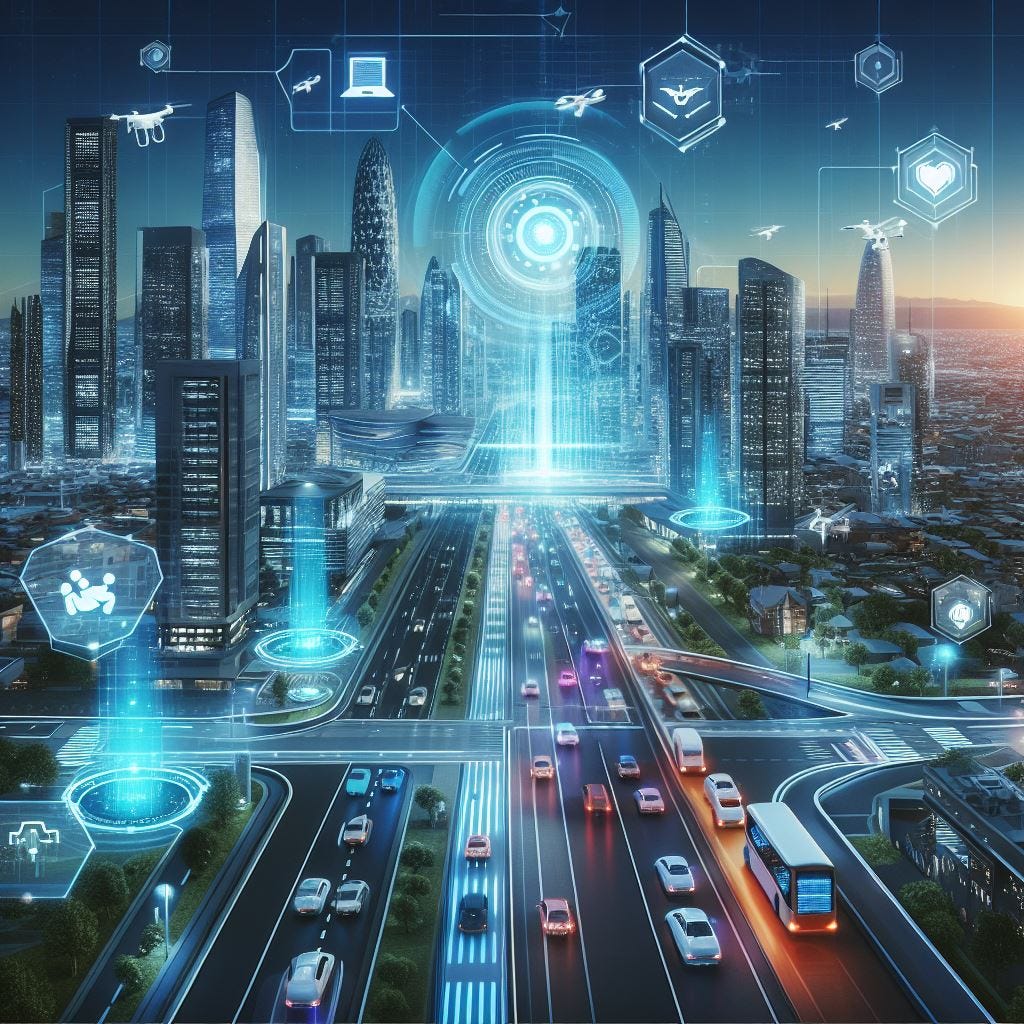The Evolution of Artificial Intelligence: From Concept to Real-world Impact
Artificial Intelligence (AI) has evolved from theoretical concepts to a pervasive force reshaping industries worldwide.
This article explores the historical journey of AI, tracing its development from foundational principles to its current transformative impact. Delving into the evolution of AI, from rule-based systems to sophisticated machine learning models, it showcases pivotal moments and breakthroughs that have propelled its advancement. Furthermore, the article illuminates the practical applications of AI across diverse sectors, highlighting its profound influence on healthcare, finance, manufacturing, and beyond. However, this transformative power also raises ethical considerations, prompting discussions on bias, privacy, and societal implications. Looking ahead, the article contemplates the future landscape of AI, envisioning its potential advancements and emphasizing the crucial need for responsible development to harness its benefits for humanity.
Unveiling the Foundation of AI
AI's Transformational Journey: Past, Present, and Future
Real-world Applications: AI Redefining Industries
Ethical Considerations in AI Development
AI: Shaping Tomorrow's Landscape
Introduction: Artificial Intelligence (AI) has evolved from a conceptual idea to a transformative force across industries. Understanding its history, current impact, and future potential is crucial to grasp its significance.
"Unveiling the Foundation of AI" delves into the origins and fundamental principles that laid the groundwork for the development of Artificial Intelligence (AI). Beginning with the conceptualization of AI in the mid-20th century by pioneers like Alan Turing and John McCarthy, this section navigates through the initial theoretical underpinnings. It elucidates key concepts such as symbolic reasoning, expert systems, and the emergence of neural networks, showcasing how these early ideas shaped the trajectory of AI. Breakthroughs like the Turing Test and the birth of machine learning as a subset of AI are highlighted, underscoring the shift from rule-based programming to more adaptive and self-learning systems. Additionally, this section sheds light on the significance of early AI research in laying the groundwork for contemporary advancements, setting the stage for the transformative journey AI has embarked upon today.
"AI's Transformational Journey: Past, Present, and Future" navigates through the evolutionary trajectory of Artificial Intelligence, chronicling its progression from conceptual infancy to its current pivotal role across industries. Beginning with the initial stages of rule-based systems and symbolic reasoning, this section explores the groundbreaking emergence of machine learning and neural networks, catalyzing a paradigm shift in AI development. It delves into the contemporary landscape, showcasing the fusion of AI with big data and cloud computing, propelling advancements in natural language processing, computer vision, and reinforcement learning. Moreover, it highlights the ongoing efforts in creating more sophisticated AI models, like deep learning and generative adversarial networks, enabling AI systems to tackle complex tasks with unprecedented accuracy. Looking to the future, this section envisions AI's potential to revolutionize healthcare, transportation, and education while emphasizing the necessity of ethical frameworks and responsible AI governance to navigate the uncharted territories ahead.
"Real-world Applications" delves into the diverse and impactful implementations of Artificial Intelligence (AI) across multiple industries. This section illuminates how AI has transformed traditional paradigms, showcasing its practicality and efficiency in sectors such as healthcare, finance, manufacturing, and more. It explores AI's role in revolutionizing healthcare by enabling personalized treatment plans, disease diagnosis through image analysis, and predictive analytics for patient care. In finance, AI-powered algorithms optimize investment strategies, detect fraudulent activities, and streamline customer service through chatbots. Additionally, it discusses AI's impact on manufacturing, where automation, predictive maintenance, and quality control redefine operational standards. By providing concrete examples and case studies, this section illustrates how AI applications are not just theoretical concepts but tangible solutions revolutionizing industries, enhancing productivity, and fostering innovation in the real world.
"Ethical Considerations in AI Development" critically examines the ethical quandaries inherent in the rapid evolution and implementation of Artificial Intelligence (AI). This section delves into the multifaceted ethical challenges, addressing issues of bias in AI algorithms, privacy concerns regarding data collection and surveillance, and the socio-economic impacts leading to job displacement. It highlights the imperative need for transparent and accountable AI systems that mitigate biases and promote fairness across diverse populations. Moreover, it discusses the ethical responsibilities of AI developers, emphasizing the importance of adhering to ethical guidelines and regulations to ensure AI aligns with societal values and principles. Addressing privacy, consent, and the ethical use of AI in decision-making processes, this section aims to spark discussions on fostering an ethical framework that guides the responsible development and deployment of AI technologies for the benefit of humanity.
"AI: Shaping Tomorrow's Landscape" is a visionary exploration of the transformative potential and anticipated trajectory of Artificial Intelligence (AI) in shaping the future. This section delves into the myriad ways AI is expected to redefine industries, revolutionize economies, and impact societal structures. It discusses AI's role in fostering innovation across sectors such as healthcare, where predictive analytics and personalized medicine could revolutionize treatment paradigms, and in education, where AI-driven personalized learning experiences could enhance educational outcomes. Moreover, it addresses the evolving nature of work, contemplating how AI might automate routine tasks, potentially leading to job displacement but also creating new opportunities for skill development in emerging fields. The section also critically evaluates the ethical considerations, privacy concerns, and the need for responsible AI governance to steer AI's evolution toward a future that prioritizes societal well-being while harnessing the full potential of AI-driven advancements. Ultimately, it emphasizes the imperative of proactive collaboration among stakeholders to shape an AI-enabled future that maximizes benefits while mitigating risks.
If you are a company or an individual who would like to place your advertising in my newsletter you can contact me (email) and let me know your request of type of ad and number of newsletters you would like to place it. I will send you a budget as soon as possible.





